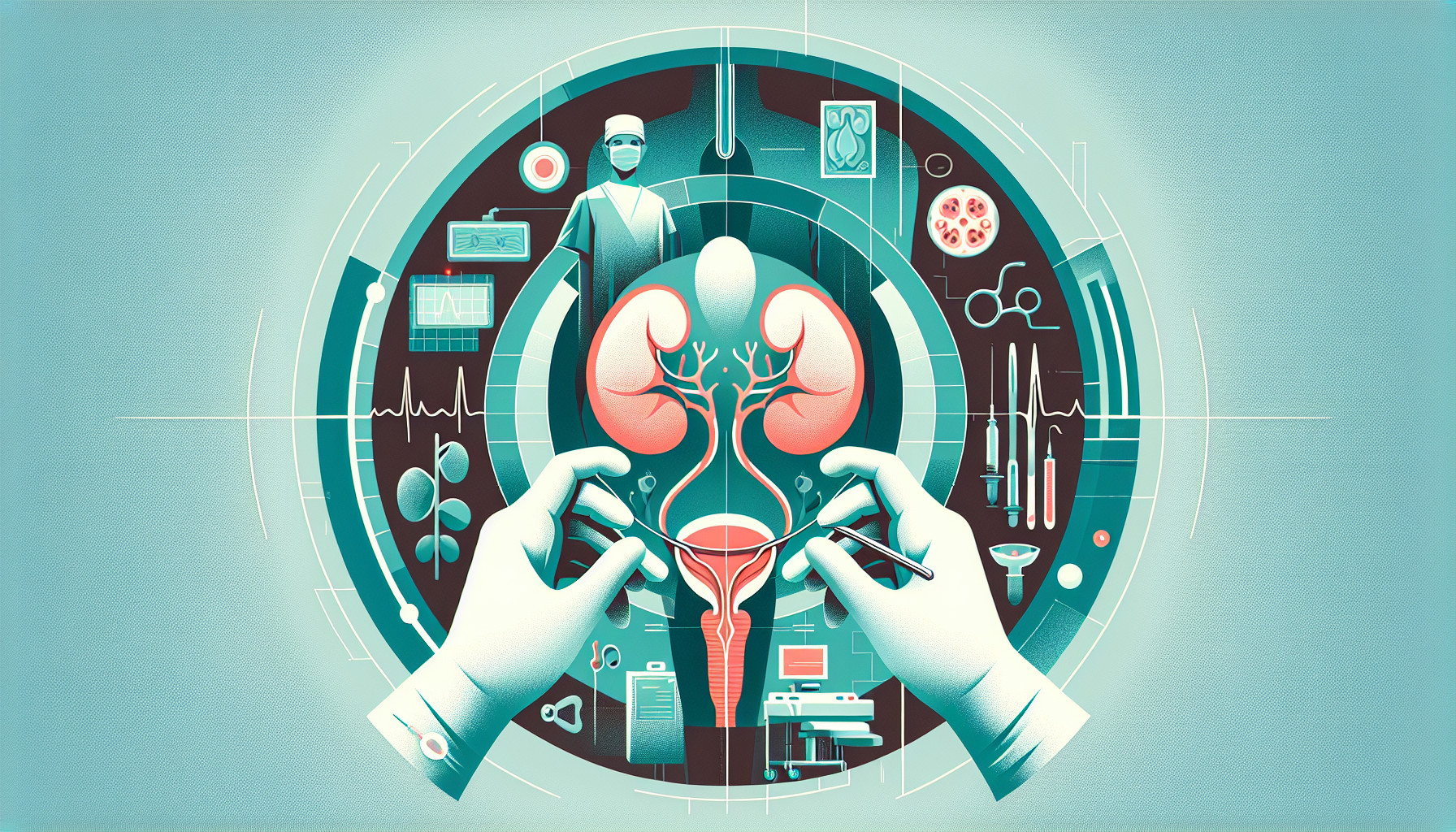Our Summary
This research paper is a review of various studies that aim to create models to predict the risk of bladder cancer-related death in patients who have undergone a radical cystectomy (removal of the bladder). The research team analyzed 19 studies that included factors such as age, sex, tumor characteristics, and treatment with chemotherapy. Most studies were found to have a high risk of bias and uncertain applicability, meaning there’s doubt about how useful and reliable they are. The paper suggests that these studies need to improve in their execution and reporting, and more studies that validate these models externally (outside the initial study) are needed.
FAQs
- What is the main goal of the research paper on bladder surgery?
- What kind of factors were included in the 19 studies analyzed by the research team?
- What were the main criticisms or issues found in most of the studies reviewed in the paper?
Doctor’s Tip
A helpful tip that a doctor might tell a patient about bladder surgery is to follow post-operative care instructions carefully, such as avoiding heavy lifting, staying hydrated, and taking prescribed medications as directed. It’s also important to attend follow-up appointments to monitor healing and address any concerns promptly. Additionally, maintaining a healthy lifestyle with regular exercise and a balanced diet can help support recovery and overall bladder health.
Suitable For
Patients who are typically recommended bladder surgery include those with:
Muscle-invasive bladder cancer: Bladder surgery is often recommended for patients with muscle-invasive bladder cancer, where the cancer has spread into the muscle layer of the bladder wall.
Non-muscle invasive bladder cancer: For patients with non-muscle invasive bladder cancer that has not spread beyond the inner lining of the bladder, bladder surgery may be recommended to remove the cancerous tissue.
Recurrent bladder cancer: Patients who have recurrent bladder cancer after previous treatments such as chemotherapy or radiation therapy may be recommended for bladder surgery to remove the cancerous tissue.
Bladder dysfunction or urinary incontinence: In some cases, bladder surgery may be recommended for patients with bladder dysfunction or urinary incontinence that does not respond to conservative treatments.
Bladder diverticulum: Patients with bladder diverticulum, a pouch-like protrusion in the bladder wall, may be recommended for bladder surgery to remove the diverticulum and improve bladder function.
Bladder stones: Patients with bladder stones that are too large to pass on their own may be recommended for bladder surgery to remove the stones and prevent complications.
It is important for patients to discuss their individual case with their healthcare provider to determine if bladder surgery is the most appropriate treatment option for them.
Timeline
Before bladder surgery:
- Patient may experience symptoms such as blood in urine, frequent urination, pain or burning during urination, and pelvic pain
- Patient may undergo various diagnostic tests such as urine tests, imaging tests (CT scan, MRI), cystoscopy, and biopsy to confirm the presence of bladder cancer
- Patient may receive counseling on the risks and benefits of bladder surgery and discuss treatment options with their healthcare team
- Patient may undergo pre-operative evaluations and tests to assess their overall health and fitness for surgery
After bladder surgery:
- Patient may experience pain, discomfort, and urinary symptoms such as frequent urination, urgency, and leakage
- Patient may need to stay in the hospital for a few days to recover from the surgery
- Patient may need to follow a specific diet and lifestyle modifications to aid in recovery and prevent complications
- Patient may need to undergo follow-up appointments and tests to monitor their recovery and check for any signs of cancer recurrence
- Patient may need to undergo additional treatments such as chemotherapy or radiation therapy depending on the stage of bladder cancer and the success of the surgery.
What to Ask Your Doctor
What are the potential risks and complications associated with bladder surgery?
What is the success rate of the surgery in terms of treating my condition?
How long is the recovery period and what can I expect during the recovery process?
Will I need to make any lifestyle changes or follow a specific diet after the surgery?
What are the potential long-term effects of bladder surgery?
Are there any alternative treatment options available for my condition?
How many times have you performed this type of surgery and what is your success rate?
What is the prognosis for my condition following the surgery?
Will I need to undergo any additional treatments, such as chemotherapy or radiation therapy, after the surgery?
How often will I need to follow up with you after the surgery for monitoring and follow-up care?
Reference
Authors: Sarrió-Sanz P, Martinez-Cayuelas L, Lumbreras B, Sánchez-Caballero L, Palazón-Bru A, Gil-Guillén VF, Gómez-Pérez L. Journal: Eur J Clin Invest. 2022 Oct;52(10):e13822. doi: 10.1111/eci.13822. Epub 2022 Jun 13. PMID: 35642331
